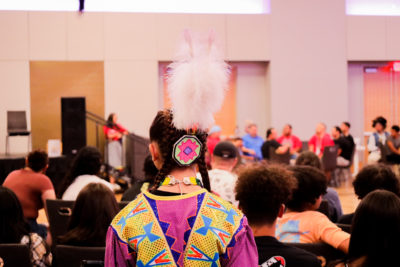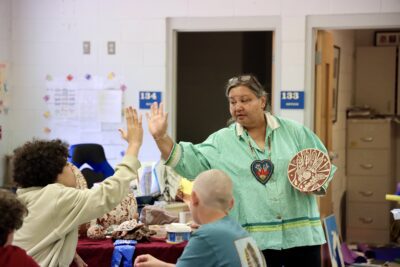|
|
As Thanksgiving approaches and Native American Heritage Month is already underway, educators across North Carolina will be teaching about the history of American Indians and the roots of the Thanksgiving holiday.
As part of a virtual education day at the North Carolina Museum of History, the North Carolina American Indian Heritage Commission (AIHC) — created by the 2021 State Budget Act and tasked with preservation, interpretation, and promotion of American Indian history, arts, customs, and culture — provides resources for educators.
You can find out more about the virtual education day and register for events here.
Also included are links to American Indian tribes and urban organizations within North Carolina.
The North Carolina Department of Public Instruction (DPI) website provides information on teaching about American Indians and for teaching American Indian students on its Culturally Responsive Instructional Resources for Teaching American Indians webpage.
Listed there are four “basic cultural competence skill areas”:
- Valuing diversity
- Being culturally self-aware
- Understanding the dynamics of social interactions
- Institutionalizing cultural knowledge and diversity
The DPI webpage also provides resources and recommended texts for teaching about Thanksgiving.
The state of North Carolina officially recognizes eight tribes:
- Coharie
- Eastern Band of Cherokee Indians
- Haliwa-Saponi
- Lumbee Tribe of North Carolina
- Meherrin Indian Nation
- Sappony
- Occaneechi Band of the Saponi Nation
- Waccamaw Siouan
Additionally, there are four urban organizations of American Indians in North Carolina:
- Cumberland County Association for Indian People
- Guilford Native American Association
- Metrolina Native American Association
- Triangle Native American Society






